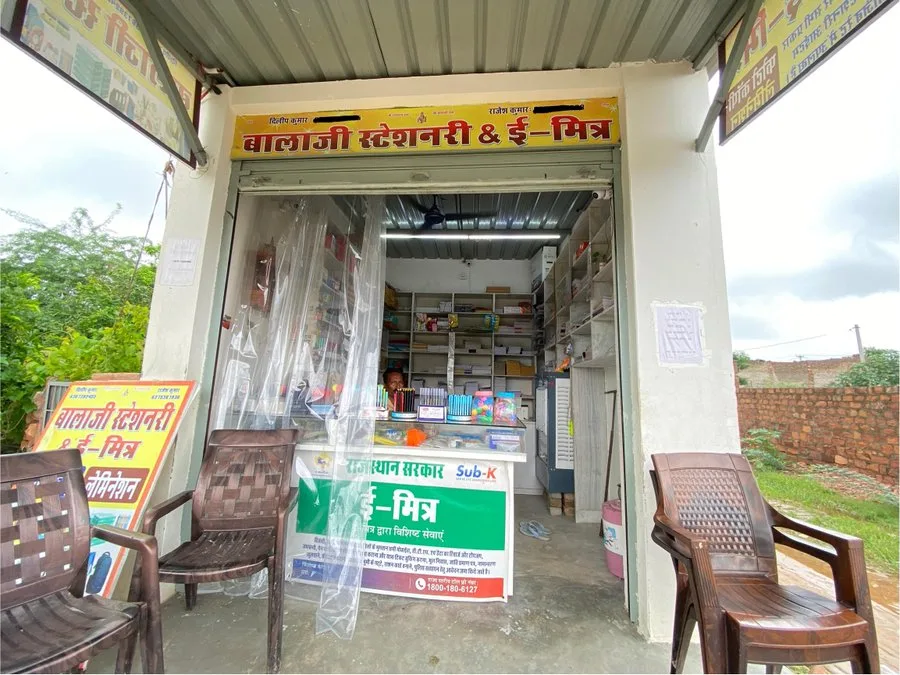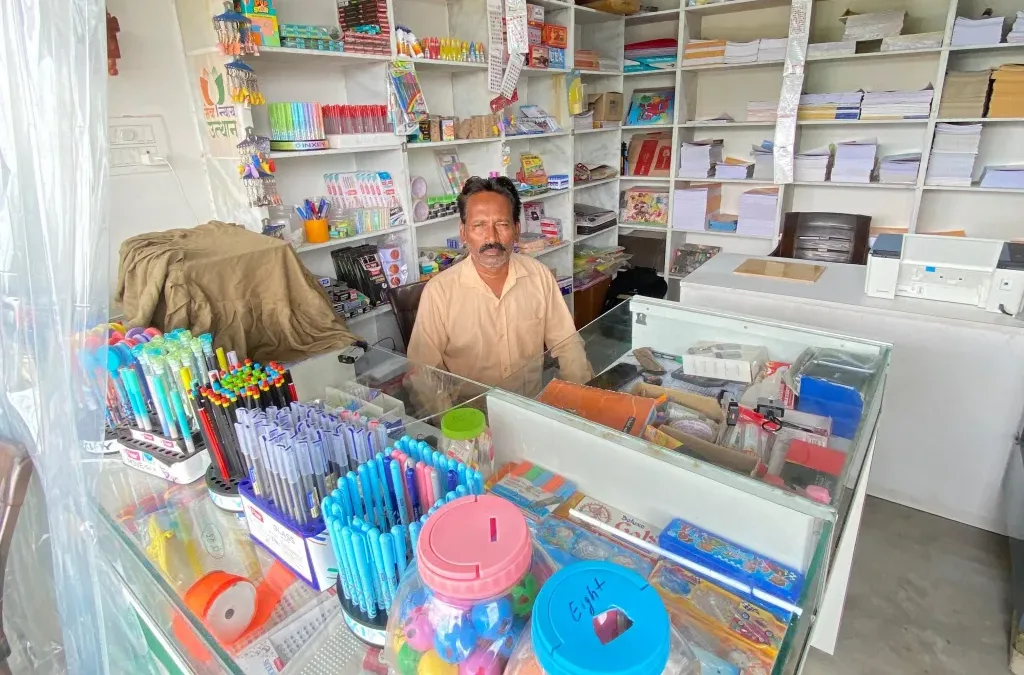Jodhpur, Rajasthan – Twelve years ago, Dehraj Bhil, a Hindu resident of Sindh, Pakistan, fled across the border with his wife and children after his elder brother was murdered in a communal attack. His repeated attempts to seek justice had failed, and he realised that “Hindus have no dignity or rights in Pakistan.” Leaving behind their home, land, and cherished memories, the family sought refuge in Bharat to escape religious persecution.
In 2013, they resettled in Gangana village, on the outskirts of Jodhpur. Dehraj, his wife, and their two elder sons, Dileep and Harish, took up work as construction labourers. Over time, the family’s situation began to improve, Harish found work at a factory, Dileep left his labour job to return to school, and Dehraj, after sustaining a back injury, opened a small stationery shop near a government school.
The shop, which also functioned as an e-Mitra centre after securing all legal approvals, was launched last year, around the same time Dehraj received his Indian citizenship. For a while, life seemed stable.

The Scam
On 3 April 2025, that fragile stability was shattered. According to Dehraj’s police complaint, around 8:40 pm a stranger entered his e-Mitra centre, requesting ₹12,000 in cash and promising an instant UPI transfer. Dehraj handed over the money after seeing a ₹12,120 credit notification on his device.
The next morning, he learned his bank account had been frozen by the cyber cell for “fraudulent activity.” At his Union Bank branch, officials told him the funds were linked to a cyber scam, and unless he paid ₹13,000 from his own pocket, his account would remain blocked. Reluctantly, he complied and transferred the remaining balance to his son Dileep’s account to safeguard it.
The Second Blow
Two months later, both father and son’s accounts were frozen again, this time with a fresh demand for ₹35,000. Struggling to navigate the bureaucratic and legal maze, the family was crushed. The stress began to affect Dileep’s health. Local police offered no solution beyond advising Dehraj to “immediately close both accounts,” telling him bluntly, “We are helpless.”
When Help Arrived
With no support from police or the cyber helpline, Dehraj approached Sewa Nyaya Utthan Foundation, an organization dedicated to rehabilitating Pakistani Hindu refugees. After hearing his story, the Foundation reimbursed the entire amount he had lost in the scam. They also connected him with legal counsel to formally dispute the liabilities and close the compromised accounts to prevent further damage.
The family is still working to regain financial stability, but their burden has eased. Dehraj’s shop is back in operation, and he remains deeply grateful to the Foundation.
“I left Pakistan for safety and dignity. But for a moment, it felt like I had lost everything again. Then help came, not from the police, but from those who truly care about people like us,” he said.
Larger Question
Cyber fraud is emerging as a new form of exploitation, preying on those with limited digital literacy. Dehraj’s ordeal is a stark reminder that systems meant to protect must be strengthened, so that the most vulnerable are shielded from harm, not abandoned to it.

